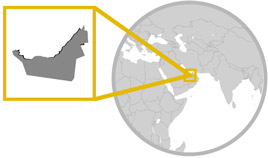Phone Lines
Nigeria uses the calling code +234 and has over 300 million phone lines connected (including those that use a wireless signal). The country uses 3 Intelsat Satellite earth stations (1 being in the Indian Ocean and 2 being in the Atlantic Ocean) and several submarine cables for international connections including SAT-3/WASC/SAFE, ACE, GLO-1, Main One and WASACE which link mainly to Europe, Asia and the Americas.
There are numerous phone providers whom operate country-wide including Airtel, Etisalat, MTN Nigeria and Globacom and mobile phones today number over 88 million with a majority of people having multiple mobile phones.
Internet
The internet services in Nigeria use the top-level domain .ng and today have over 56 million users, ranking them 8th in the world with around a third of the population online. There are over 15 thousand subscriptions to fixed broadband and over 17 million wireless broadband subscriptions. Within Nigeria, there are around 100 Internet Service Providers as well as satellite Internet access. In recent years, many people have begun accessing the internet via smartphones and a multitude of internet cafes have opened up.
Despite freedom of speech being widely accepted across the country, there has been some policing on politically-sensitive matters with reporting on corruption and security being particularly sensitive, although reporters and civil servants have been taken to court for defamation of allegedly corrupt politicians, none have been jailed thus far.
Communications
Today, there are over 57 million Television sets and over 30 million Radio sets in the country with over 70 TV stations and over 130 Radio stations set up throughout the country, around 50 being government owned for each. Due to the high costs of TV sets and Newspapers, people stay in the loop primarily through the less-expensive radio and often listen in on International Broadcasts as well.
Through the National Broadcasting Commission (NBC), the government is able to effectively control electronic media and has been known to politically censor radio stations and limit international exposure of TV stations. It’s also important to know that journalists in the country who have reported via TV, Radio or Newspaper about politically sensitive matters have known to be harassed, detained and even beaten by security forces.

